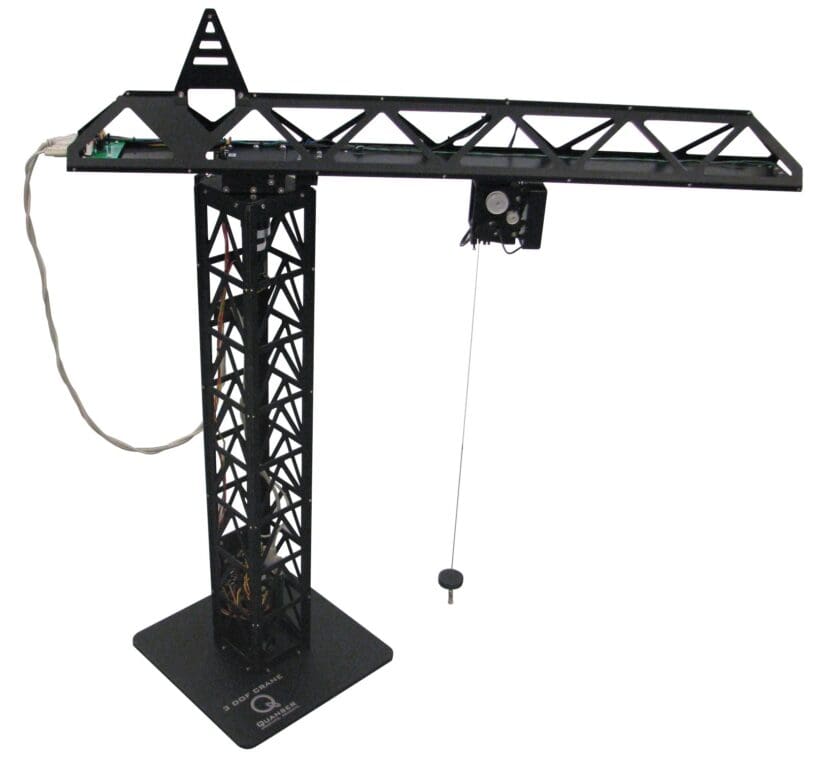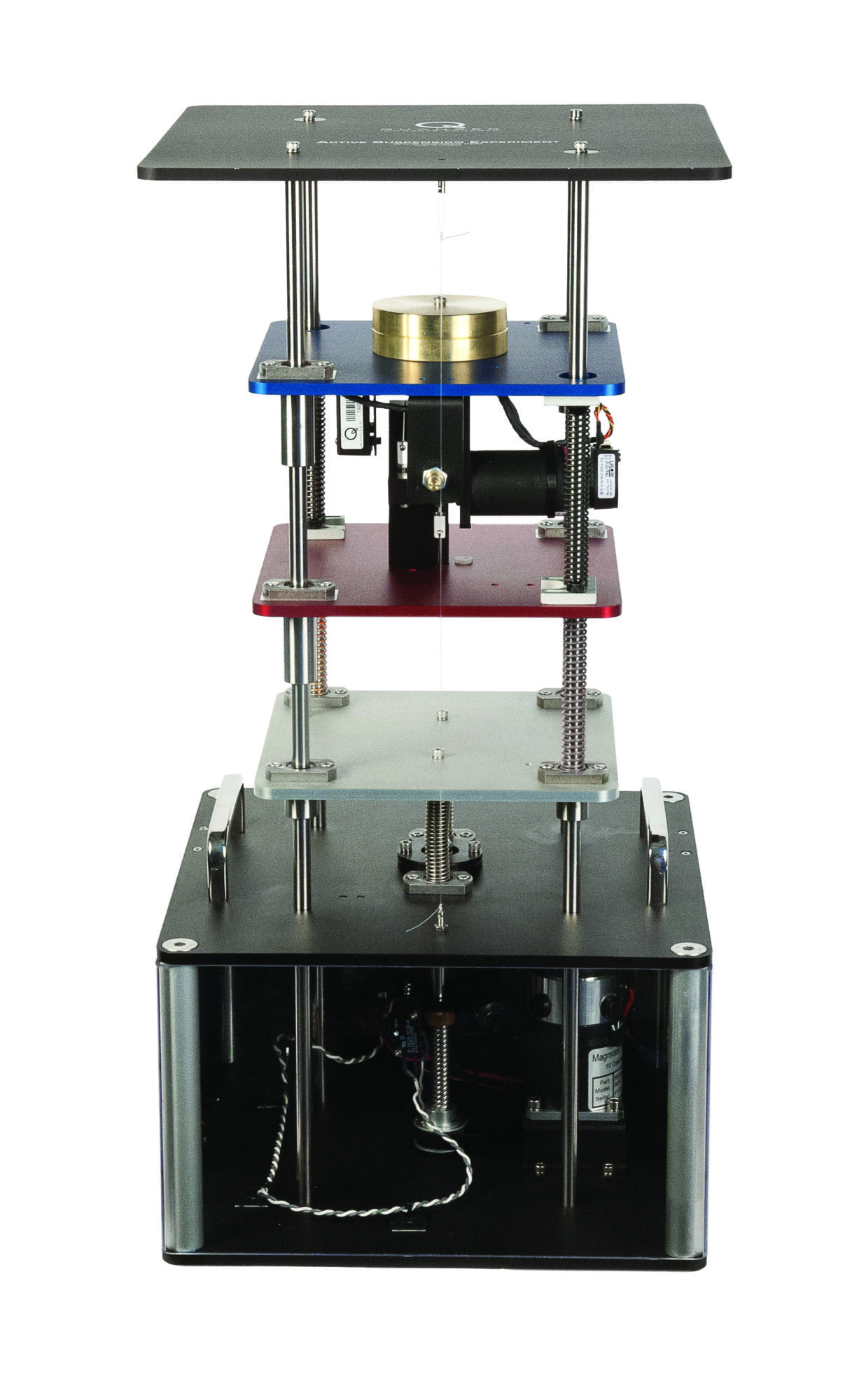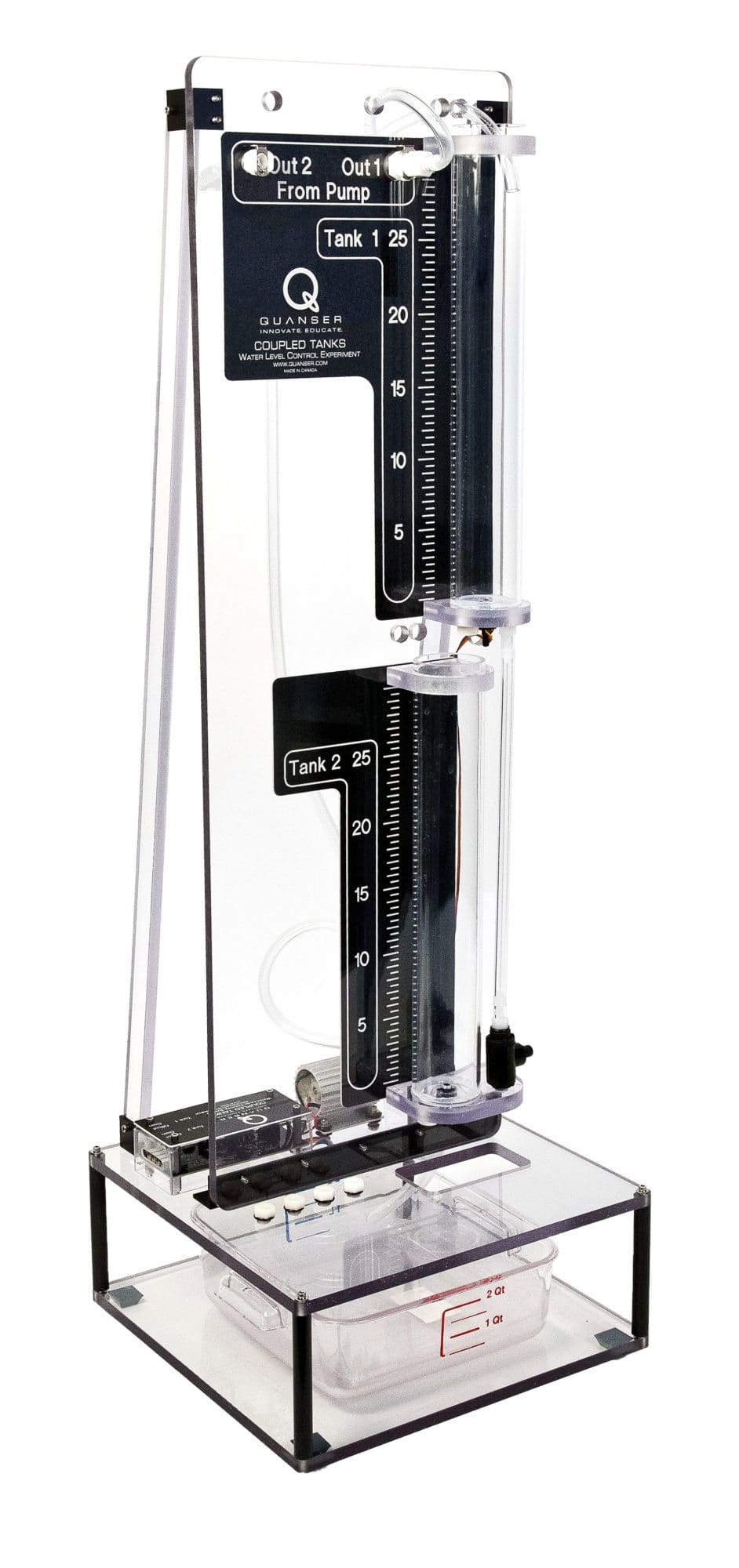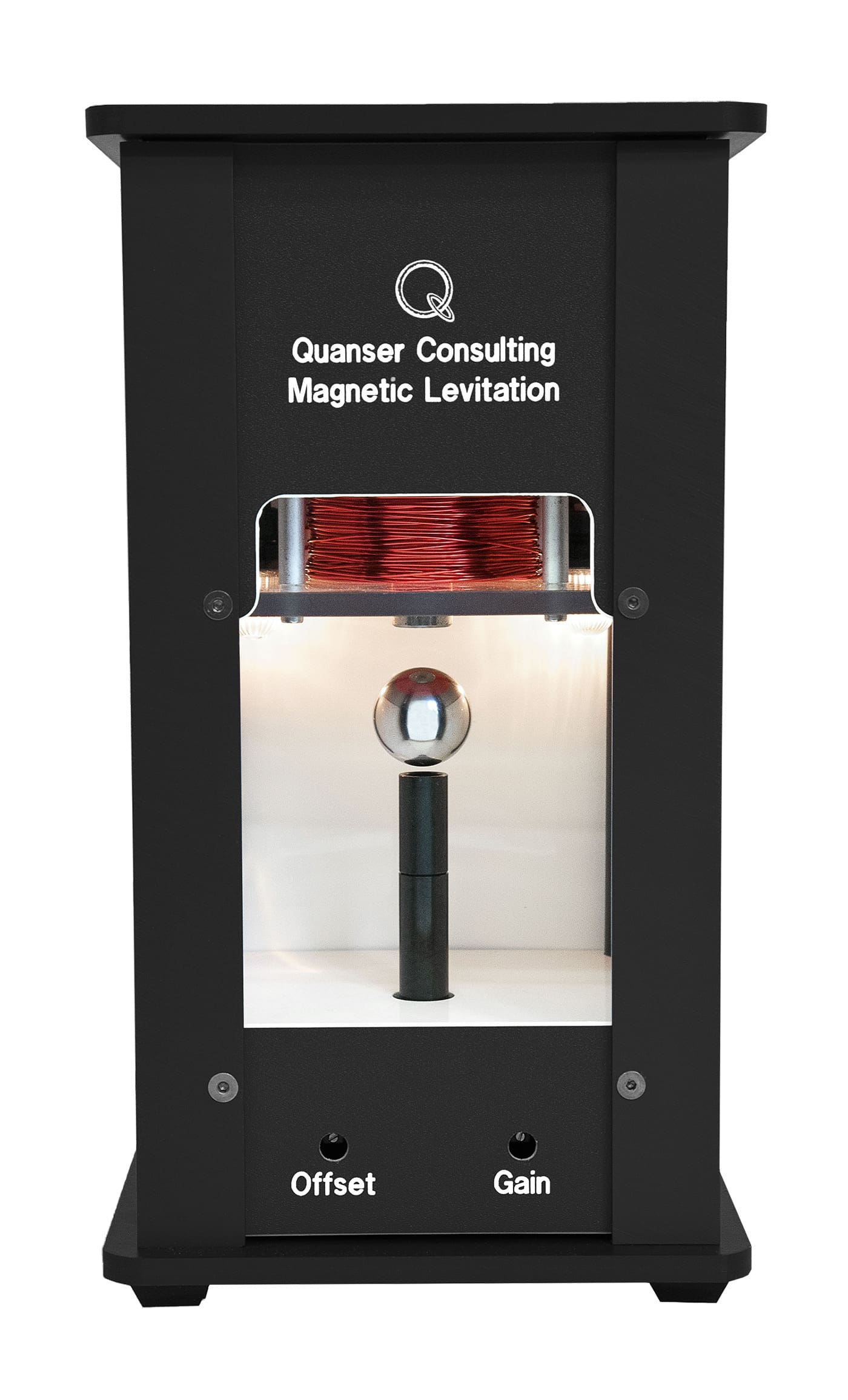3 DOF Crane
This product is no longer available.
Commonly used to build structures, tower cranes are designed to lift and move heavy objects over large distances safely. Operating them requires training and skills. The 3 DOF Crane experiment replicates much of the functionality of an actual tower crane and can be used to understand the dynamics and control challenges involved in everyday crane operations. For instance, the challenge of minimizing the motions of the load being carried introduces a great control problem for students.

Product Details
The 3 DOF Crane consists of a vertical tower or mast, a horizontal jib, and payload. The tower rotates using a high quality Maxon DC motor through a harmonic gearbox. Two limit switches detect when the tower has reached its limits. The trolley suspended underneath the jib is fastened onto a linear guide and actuated using geared motor and lead-screw assembly. This allows the trolley to move along the jib smoothly and precisely. Two limit switches installed at each end of jib detect when the trolley has reached its end limits. The trolley has its own MICROMO DC motor that is fixed to pulley/spool system to move the payload vertically up and down. A limit switch underneath the trolley detects when the payload has reached the top position. High-resolution encoders measure positions of the rotary tower, the linear trolley, and the vertical payload.
- High-resolution optical encoders for precise position measurements
- Trolley and payload driven by high-quality MICROMO DC motors
- Tower actuated by high-quality Maxon DC motor
- Low backlash harmonic drive used for tower
- Limit switches to detect when the tower, trolley, and payload have reached their limits
- Cut-off diodes disable the tower motor when its limits are reached
| Tower base dimensions (L x W x H) | 40.5 cm x 40.5 cm x 1 cm |
| Tower height (base plate to top) | 120 cm |
| Jib length | 121 cm |
| Crane mass | 16 kg |
| Trolley lead screw pitch | 1.27 cm/rev |
| Encoder count resolution | 4096 counts/rev |
| Effective tower angle resolution | 8.79 x 10-4 deg |
| Effective trolley linear position resolution | 8.38 x 10-7 m |
| Effective payload linear position resolution | 7.83 x 10-7 m |
| Effective payload gimbal deflection angle resolution | 0.0879 deg |
- PID control design
- LQR control design
- State space representation (for Rotary and Linear gantry subsystems)
- Transfer function representation (for Payloads subsystems)
- State-feedback control
- Control parameter tuning
The following additional components are required to complete your workstation, and are sold separately:
For Simulink
- QUARC® add-on for MATLAB®/Simulink®
- Quanser AMPAQ-L4 current amplifier
- Quanser QPIDe DAQ device


